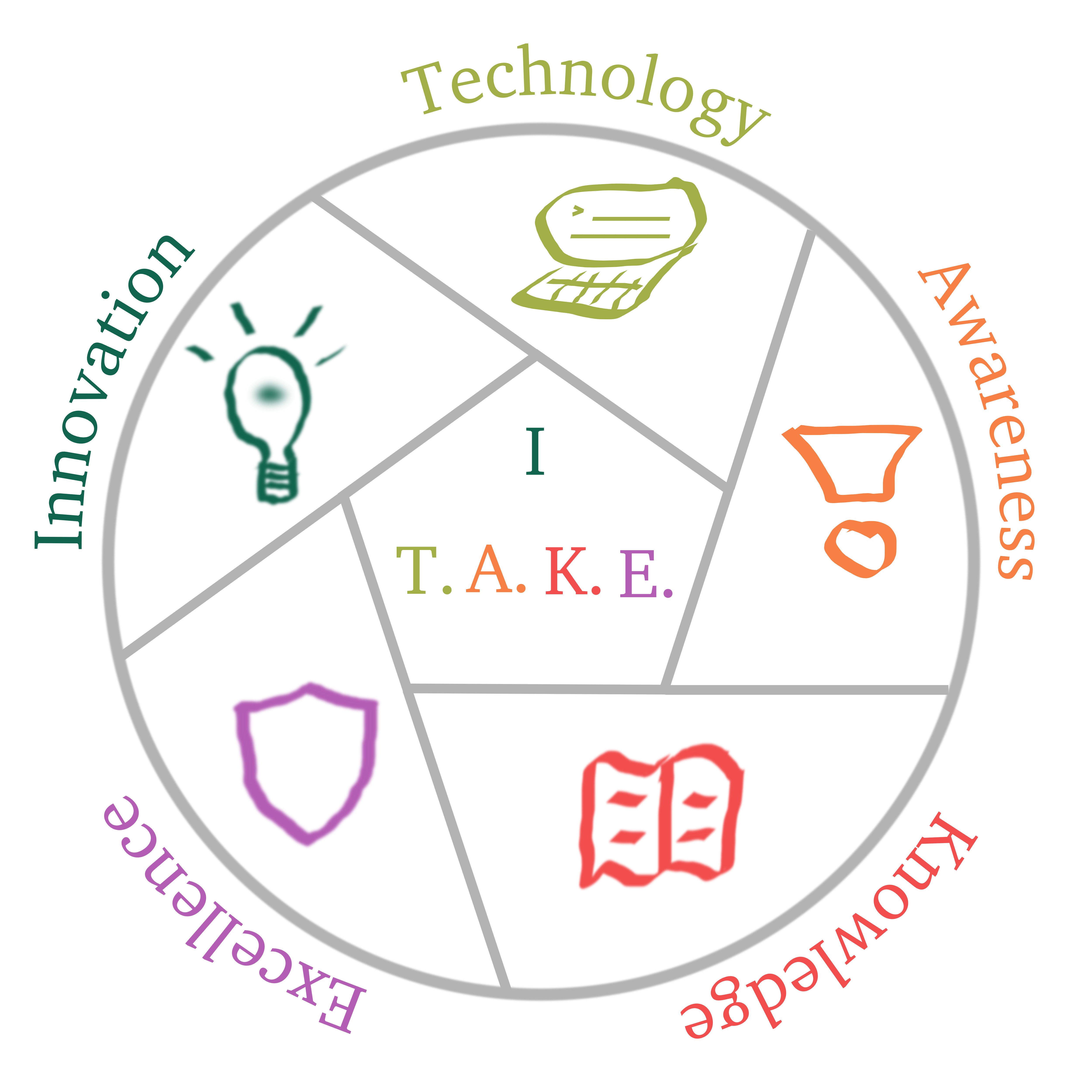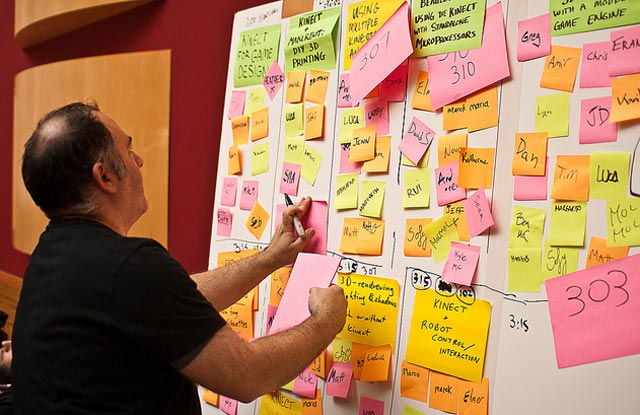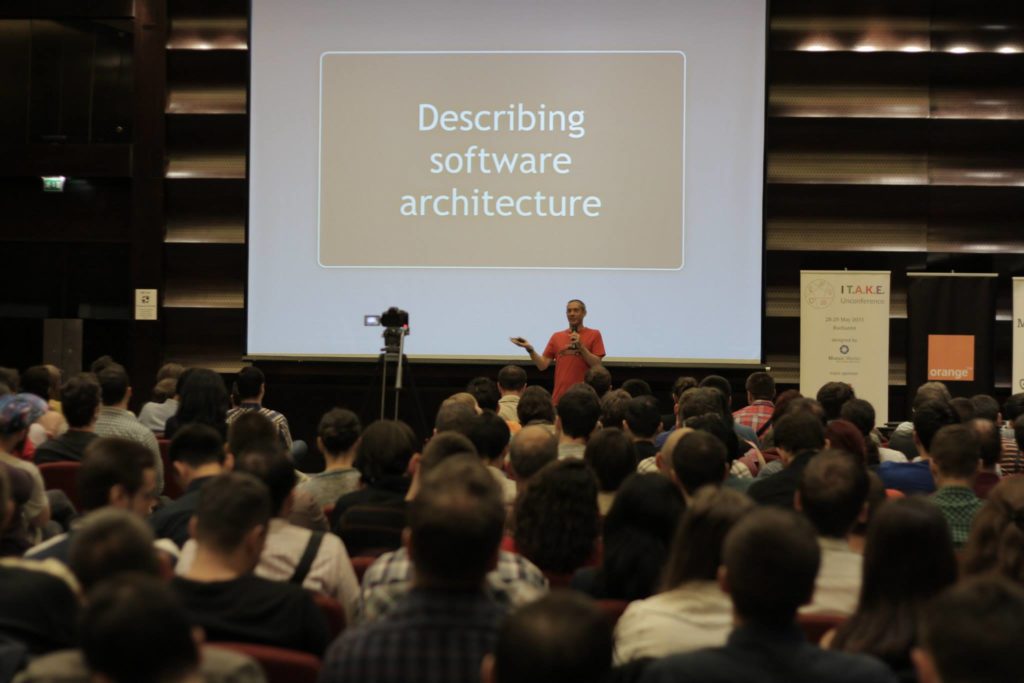3 easy steps to personalize your Agenda for I T.A.K.E. Unconference
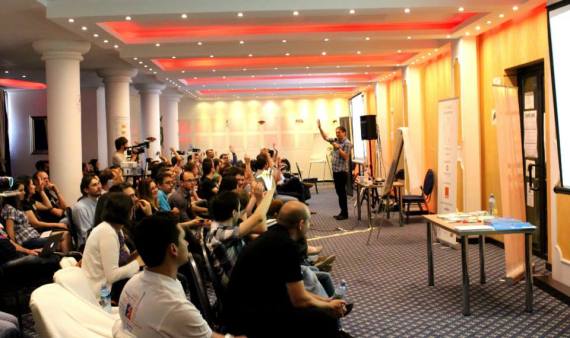
As there are multiple types of activities happening in the same time in different rooms, design your own agenda up-front.
Whether you got your ticket or you are considering to, here’s how you can benefit the most from the 3rd edition of I T.A.K.E. Unconference:
Keynotes and sessions
- Select the sessions from the Schedule.
- (Optional) Check the persona for the selected session (when in doubt).
- Build your own agenda based on the sessions you want to attend.
In the afternoon enjoy the unconference flavor by attending the Open Space.
All-day Activities
Exercise your programming muscle all-day with the Kata Lounge & Product Development tracks, open for you to join whenever you choose.
Watch out for the Programming Contest, where you can win a drone or an iPad, if you compete before 29 May, 2 PM.
Evening Activities
What else is prepared for you? In the evenings, enjoy:
- Code with a Stranger – Have fun, drink a beer, and pair-program with a stranger what you have learnt during the first day or anything you want to practice, scheduled for the 1st evening.
- Networking Party* – Enjoy drinks and food – offered by Mozaic Works – for a chatting fine end of the day, scheduled for the 2nd evening.
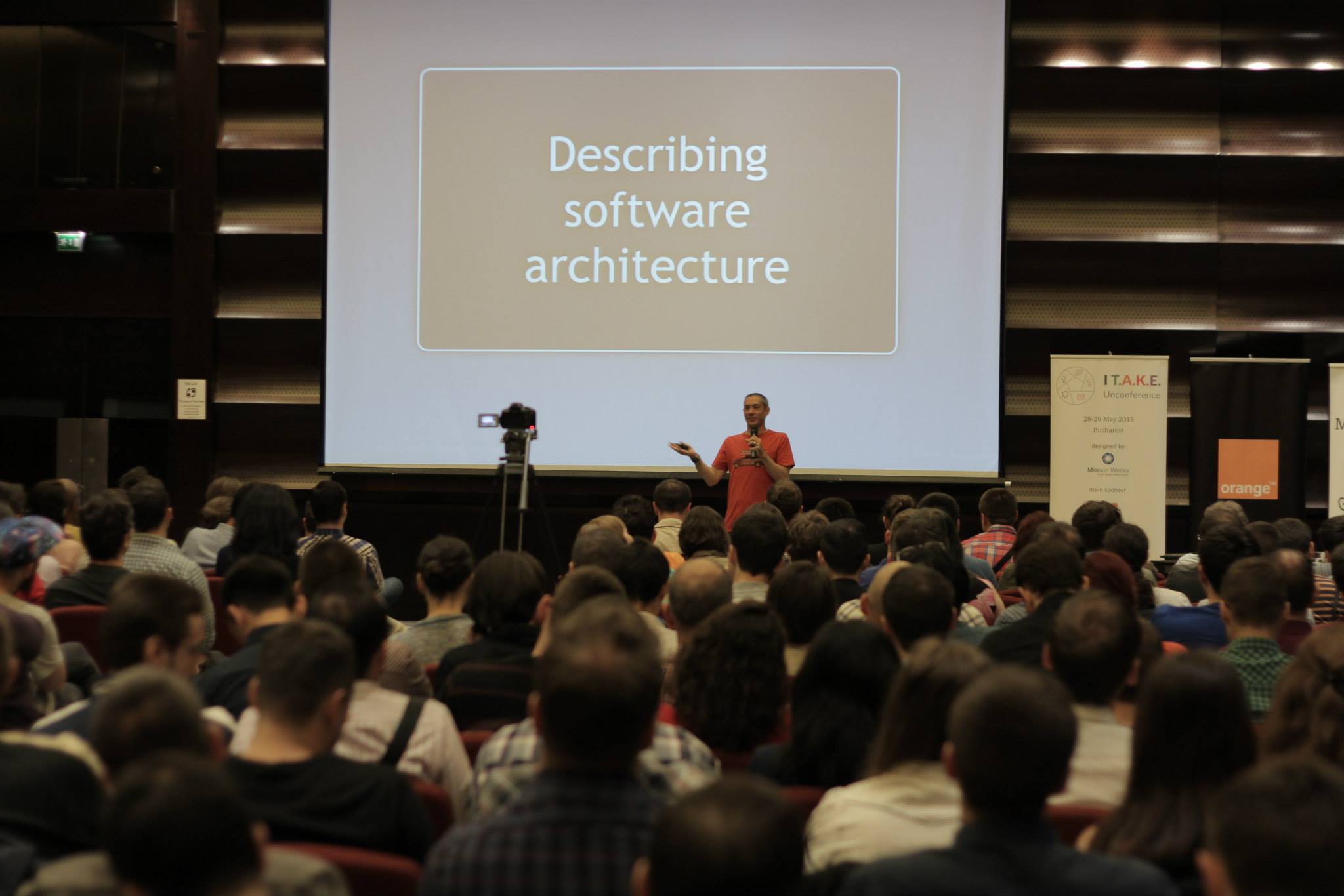
5 things to consider when you submit a session abstract
If you are an experienced software craftsperson, but you are new to the international stage of speaking and teaching, here are 5 recommendations to make an attractive session abstract for the audience of I T.A.K.E. Unconference.
#1. Get into the attendees shoes
If you have a very clear idea of who your audience is going to be, make the exercise to think from their point of view. They choose to attend your session, and they expect the best value from their investment.
So, here are 3 things to consider:
- what do you think is going to drive their attention
- what is that thing they will remember
- and apply in their daily work
#2. Customize, customize, customize
Every audience is unique, so craft your proposal according to what you know about your audience and about the event. Try to bring an original approach for each session you submit.
As organizers, we encourage the speakers to have a clear goal for their session. Another essential aspect is to both inspire the audience and send them to a new path. With your session you influence people so that they could adopt a different strategy or improve right away their work, and why not, their daily life.
#3. Pay attention to details
When you apply, make sure you have an excellent title, a clear description of what you want to present and a strong personal bio.
Make sure your title is not generic. Don’t use “Unit Testing” as a title for your workshop. You do not have enough time to teach unit testing in 90 minutes. Try something like “Unit Testing Crash Course” if it is for beginners. If you designed a workshop for an intermediate audience try something like “Unit Testing: stubbing techniques on functional languages”.
The title is strictly connected to the topic of your session. Too often the session title says something different than the content of the abstract. For a title like “Test Driven Development for beginners” we would expect to hear about Evolutionary Design. If you have such a title and you want to teach an unit testing crash course and not Evolutionary Design, then use the appropriate name and change the title to “Unit Testing Crash Course”.
An attractive title that can be intriguing can catch reviewers eyes as well. Instead of using “Unit Testing Crash Course” you could try “Keep your job: learn unit testing now!”
#4. Invest time in your application
Although it might seem at hand, making a proposal takes time. Make sure you follow the guidelines offered by the organizers and when in doubt, ask for more details. Make sure you offer the details requested in the application.
Pitch an interesting subject, and valuable take aways. The audience is at your session to learn about new interesting ideas and concepts.
#5. And a little extra thing
You’ve seen the call, you got your information in order and you are pretty sure you want to make a submission. In this case, we strongly advise you to make an early submission. In many cases, you will be able to obtain feedback from the organizers. This means you will be able to improve your proposal and increase your chances to be on the speakers list.
Take a step forward and share your knowledge: new ideas, opportunities and glimpses of where the future of the technology lies are needed to challenge and to improve the daily routine. Looking forward to hear more about your proposed sessions!
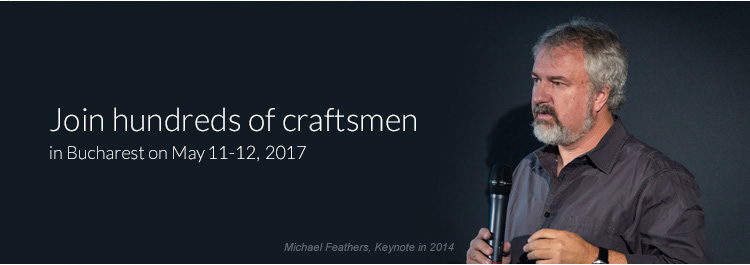
How to find ideas for talks? 5 tested ways
When asked about what’s stopping them from joining technical events as speakers, most software crafters mention both external and internal barriers. Among them, “lack of extensive speaking experience” and “I can’t identify a specific topic to talk on” are recurrent.
If this is your case as well, here are 5 tested way from our team to get your ideas in order.
#1. Think of your best area of expertise and identify what’s worth sharing with others.
#itakeunconf tip: our team of reviewers will help you improve your sessions if necessary.
#2. Get a group of friends or colleagues together. Having other people to brainstorm ideas can help a lot: you might discover ideas that you wouldn’t have thought otherwise.
#itakeunconf tip: whenever we feel blocked, we ask our colleagues opinions. This way, we know that we will advance faster and improve our work.
#3. Identify specifically one practice or more from your area of expertise. What’s one important thing you are mastering and believe other practitioners should know? Why?
#itakeunconf tip: when applying to call for speakers, ask for feedback from the event team on your ideas.
#4. Present your session in a dedicated meetup, with a smaller audience. This way you will gather feedback and discover some new perspective to approach the session.
#itakeunconf tip: no matter the city, there are countless active meetup groups in the technology field. For example, if interested in agile, lean and software craftsmanship, get involved in AgileWorks monthly meetup.
#5. What’s the most exciting thing you are currently working on? Write down what’s your current drive and why. What example can you make out of it and others would find it useful?
[ctt template=”12″ link=”Q5Hdc” via=”no” ]#itakeunconf tip: our team of reviewers will help you improve your sessions if necessary.[/ctt]
Show us your coding skills and experiments. You have time until December 15th to apply at Call for Speakers!

9 questions about I T.A.K.E Unconference
- Top-notch international speakers, with several years of experience in the tech field
- Qualitative content and the latest technologies
- An innovative and complex program format, through which the participants can pursue their own learning objectives, find value and experiment with all these concepts right during the event.
I am excited to share a few thoughts about writing software for abstract domains, such as the humanities and the liberal arts, at the I T.A.K.E. Unconference. My formal background in computer science and filmmaking informs how I make qualitative choices in the quantitative domain of software. I’ll share historical experiences from tooling to implementation, and discuss how this approach can even benefit conventional problem sets in commercial applications.
“Preparing detailed examples to show various scenarios of how the system will be used can have a huge impact on the testability of the system especially when it is the development teams job to automate the execution of those examples. All of a sudden, it becomes in developers best interests to make the system testable! And therefore the system becomes more easily tested.”
There is a huge competition in the software development market for the best job, fancy technologies, big money. Trying to outcompete others with technical skills is doomed to fail because surprisingly, most of our success is not due to technical abilities. I will share practical tricks that will accelerate and significantly improve your engineering career.
What is computer science? How do we measure if a programming teaching method is better than another? I’ll explain how we can organize research into computer science and what impact have educational programming programs?
- Create a product from scratch to Product Development Track through practices of Software Craftsmanship applied live and without the pressure of the office.
- The opportunity to create the Agenda within the technical Open Space. Each participant can become a speaker, share knowledge and experience on the subjects that are super passionate.
- Kata Lounge – participants may write code at any time during the event, solving a problem (called kata). Then get feedback from participants and speakers.
- Programming contest- we create for this challenge a set of problems to solve during the event and you can earn cutting-edge gadgets.
- Code dinner with a stranger takes place on the first evening of the event. There are created ad-hoc groups of participants and speakers (generally a speaker on a certain theme “gathers” a group of participants for dinner who want to debate and more on the topic addressed by speakers)
